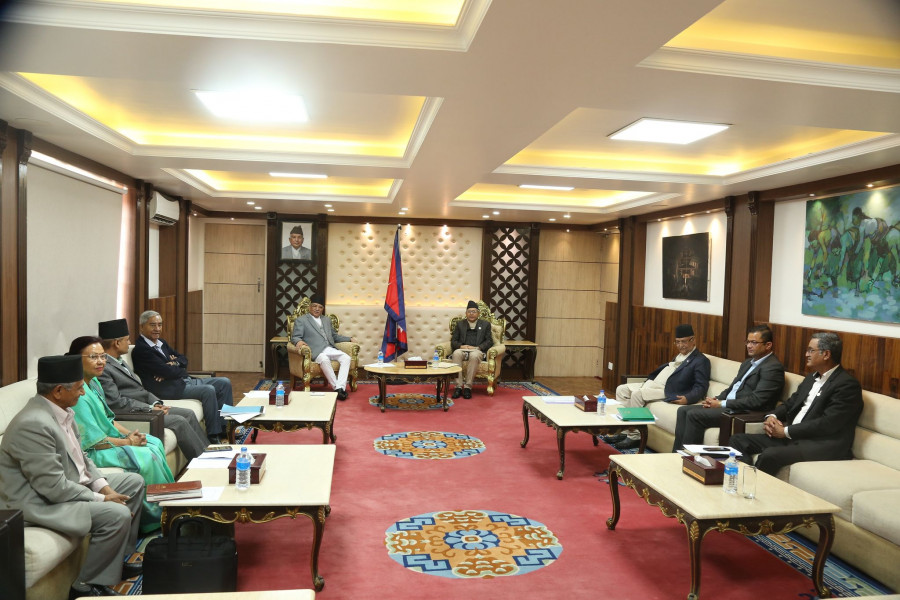The ruling alliance and the main opposition are at loggerheads over the parliamentary endorsement process of the amendment bill.

Top leaders of the three major political parties have agreed to ensure that the bills including transitional justice are just and acceptable for all sides.
A meeting held at the Speaker’s residence in Baluwatar on Tuesday also decided to have further discussions on the issues and processes, according to the Speaker’s secretariat.
The leaders also agreed to finalise the political parties’ representation and leadership of the parliamentary committees in consensus.
Prime Minister Pushpa Kamal Dahal, Speaker Dev Raj Ghimire, Nepali Congress President Sher Bahadur Deuba and CPN-UML Chairman KP Sharma Oli, among other leaders were present at the meeting.
UML chief whip Padam Giri, CPN (Maoist Centre) chief whip Hit Raj Pandey, Congress lawmaker Ishwori Neupane, attorney general Dinmani Pokharel and former attorney general Ramesh Badal were also present at the meeting.
The leaders have agreed to discuss the matter in the next meeting to be held at Singha Durbar at 1pm on Friday.
The ruling alliance and the main opposition are at odds over the parliamentary endorsement process of the amendment bill on the Truth and Reconciliation Commission (TRC) Act.
The ruling parties have been trying to convince the opposition parties to pass the bills related to transitional justice through a fast-track process from the full House but the opposition parties are insisting that the bill must be sent to the related thematic committee to discuss some of the disputed provisions there thoroughly.
The federal parliament is yet to form its thematic committees. There will be a total of 16 committees, including 10 in the House of Representatives, four in the National Assembly and two joint panels that include the parliamentary hearing committee.
Transitional justice is a major component of the Comprehensive Peace Accord that brought the Maoists to the political mainstream.
Seventeen years have passed since the peace process began following the signing of the Comprehensive Peace Accord in 2006.
But major political parties are still blaming each other for the delay in concluding the process. Needed amendments to the laws have not been made while the two commissions created to provide justice to the insurgency victims remain largely ineffective.
In the Common Minimum Programme unveiled on April 4, the ruling coalition has pledged to take the ongoing peace process to its logical conclusion within two years.












